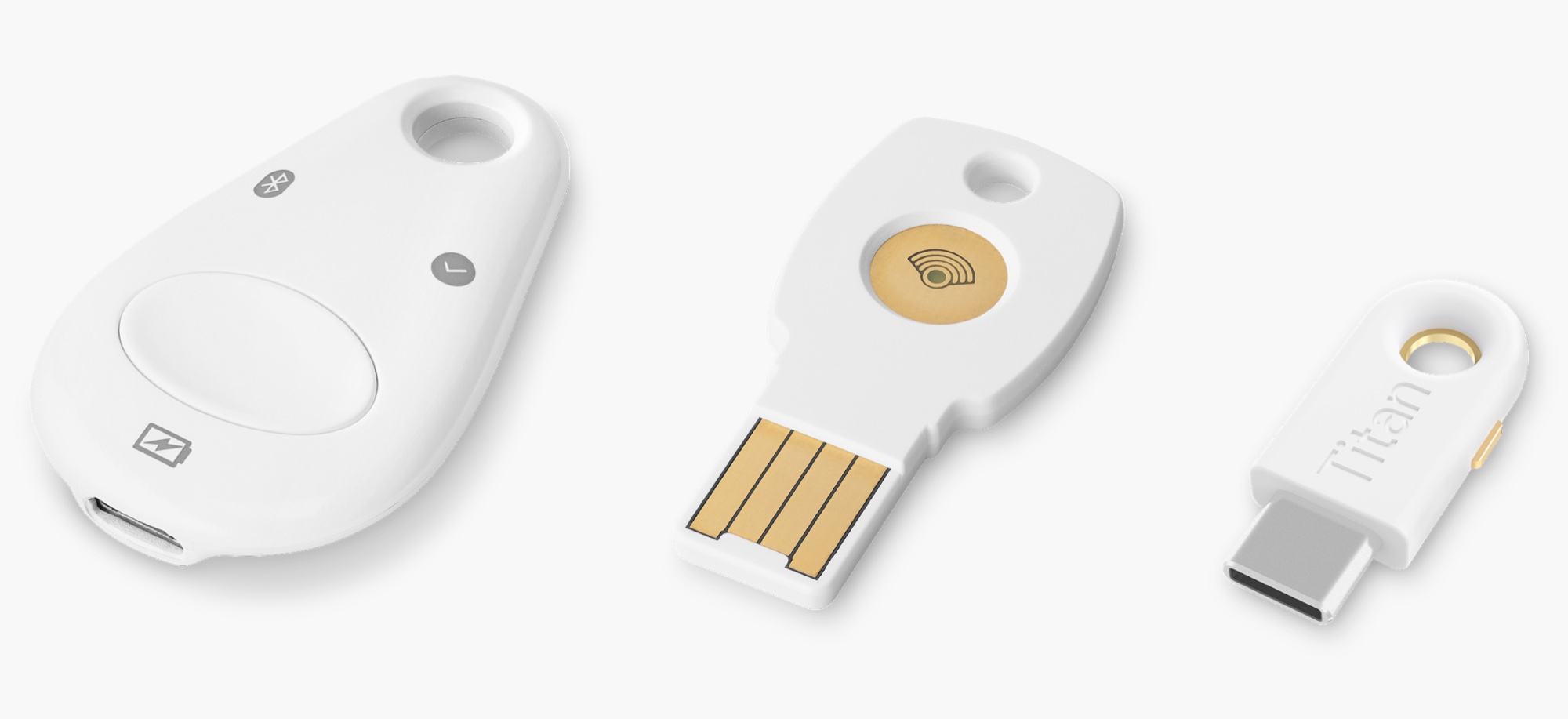
Google today announced native support for the W3C WebAuthn implementation for Google Accounts on Apple devices running iOS 13.3 and above, which improves the security key experience on iOS and allows more security key types to be used with Google accounts and Google's Advanced Protection Program.

With the change, iOS users are able to use Google's Titan Security Keys with NFC, tapping the key on the back of the iPhone when signing in as a security measure.
Lightning or USB security keys like the YubiKey 5Ci can be used with Google accounts if you have an Apple Lightning to USB Camera Adapter. USB-C security keys can be plugged directly into iOS devices with a USB-C port, such as Apple's iPad Pro models.
Google says that it recommends users install the Smart Lock app to use Bluetooth security keys and the iPhone's built-in security key, as this provides a way for the iPhone to function as additional protection for a Google Account.
Google also recommends that Google users who are at higher risk of targeted attacks utilize security keys and enroll in its Advanced Protection Program, which is the feature that allows for extra account protection with physical security keys.
Using a physical security key provides more protection than two-factor verification because it requires you to have the physical key (or the iPhone Key with the Smart Lock app) to sign in to your Google accounts rather than just a digitally generated code.
Article Link: Google Improves Security Key Support on iOS Devices

